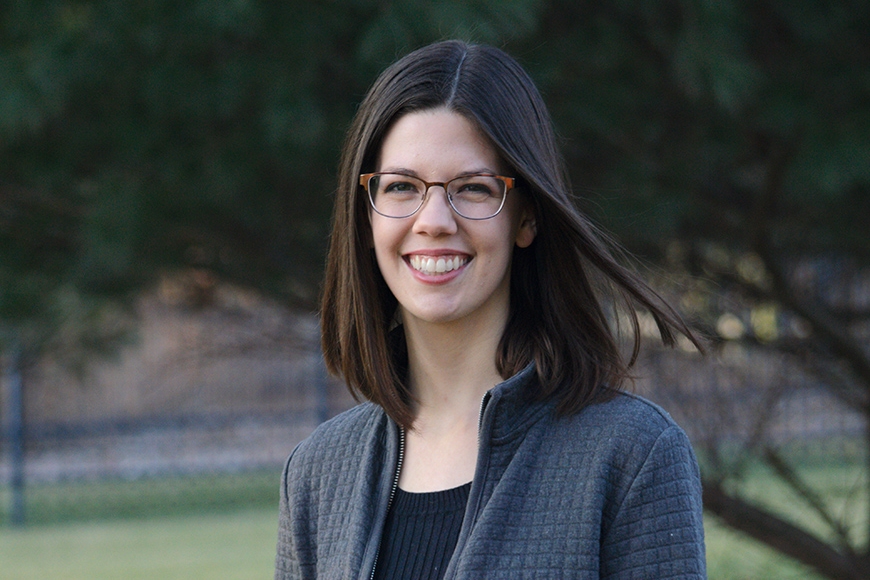Grad Studies: Writer-Reader Relationships and 19th-Century Literature
Congratulations to Morgan Graham, a doctoral candidate in English literature who received an inaugural Early Career PhD Merit Award from the Department of English! This new award is meant to recognize "exceptional levels of academic engagement on the part of a beginning PhD student" and to encourage the student's future research agenda.
What will this Early Career Merit Award make possible for you?
I’ll use the Early Career Merit Award to attend the Thomas Hardy Society conference in Dorset, England, this summer. While there, I’ll spend a few days working in the Thomas Hardy archives at the Dorset County Museum and exploring the land that Hardy loved. I can’t wait to visit England and experience Hardy through his manuscripts and letters. This research will be important for my dissertation, which I’ll start writing this fall—so I’m grateful to the Early Career Merit Award for making the trip possible.
What drew you to study literature at the University of Minnesota? Have certain professors and/or peers significantly impacted your studies thus far?
I came to the University of Minnesota interested in 19th-century British literature and creative nonfiction writing. The University of Minnesota is unique because we have a strong 19th-century program and a world-class MFA program. The interdisciplinary approaches Professors Elaine Auyoung and Andrew Elfenbein take to 19th-century studies inspire me to think expansively about my own work, and I’ve benefited from chances to take creative writing classes here, too. The MFA students I’ve become friends with have strengthened my writing.
My dissertation project will explore the possibilities for a living reader to have a relationship with an author that is made possible only by the texts they left behind and their presence in the archives. I hope to explore this through archival work and analysis of the fiction and lives of George Eliot and Thomas Hardy.
I’m grateful for the mentorship of Professors Auyoung, Kathryn Nuernberger, Katherine Scheil, and Siobhan Craig. From the first semester, they have supported my work, written letters of recommendation, and encouraged me to push myself. I’m also grateful for the late Professor Qadri Ismail, who taught me to pay attention to the text and write precisely. And even though my cohort hasn’t had many chances to see each other in person, we find ways to support each other.
Covid has no doubt limited your exploration of the Twin Cities and Minnesota. But what has been your favorite discovery, living here?
I love the vibrant literary community in the Twin Cities. Attending events in the MFA program and connecting with local writers has helped me feel like part of that community. Last year, I worked as book reviews editor at the English department-housed international literary journal Great River Review; now I regularly review titles from Graywolf and Coffee House Presses for publications like Chicago Review of Books. I hope to continue participating in the literary scene here in the Twin Cities.



